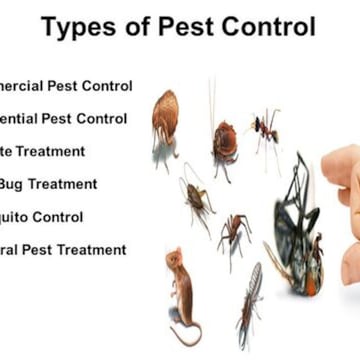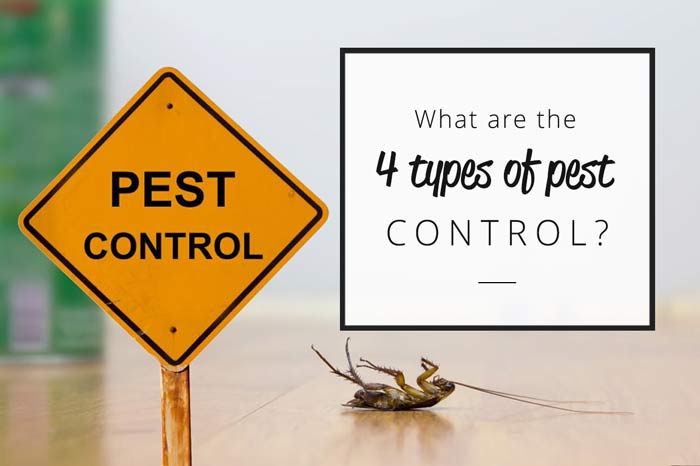All About Pest Control
Table of ContentsThe 10-Second Trick For Pest ControlGetting The Pest Control To WorkEverything about Pest ControlThe smart Trick of Pest Control That Nobody is Talking AboutThe Facts About Pest Control RevealedThe 25-Second Trick For Pest Control
Our findings show that the preliminary assessment will certainly set you back anywhere from $160-$300 on average. This generally sets you back anywhere in between $400-$1000 for the whole year's protection, with monthly or bi-monthly visits already rolled right into the last expense.Depending upon the trouble, a task that needs a single visit commonly costs $300 to $550. These are the most convenient costs to describe in your bug control catalogs. Be sure to discuss to your customer the procedure and the time it will certainly take to assess the situation. During this very first check out, you may uncover that the work needs numerous added check outs, whereupon you can consider it a first go to.
Insects that typically needs ongoing sees include: Cockroaches. Crawlers. Termites. Ticks. Rodents. Our searchings for show that a preliminary browse through has to do with $180 and is the first of an ongoing contract. The first go to is where you do the examining that will assist you find out an option. During this first check out, you should: Assess the issue. Pest Control.
12-month contract. In general, the regularity of periodic gos to is: On a monthly basis: $40 45. Every 2 months (semi-monthly): $50 60. Every 3 months (quarterly): $100 300. Parasite control is a chemically-intensive organization. Besides, chemicals are the vital materials that pest control operators utilize to finish a job. Typical chemicals consist of: Boric acid.
Pest Control Fundamentals Explained
Necessary products and materials you'll use include: Respirator. Sprayer. Handwear covers. Duster. Foamer Baiting devices. UV light. Various other security devices. It is very important to have all of the right devices before starting a job. Your tools should be included as part of your expenses costs. If you have employees, then labor expenses are mosting likely to be the biggest costs for your organization.
Limitations of Chemical Administration Be able to assess bug troubles, determine if administration is essential, and make appropriate referrals making use of IPM strategies. Be familiar with various methods of pest management - their benefits and restrictions.
This phase goes over (IPM), a method that utilizes understanding regarding insects and their, techniques, nonchemical techniques, and chemicals to take care of bug problems. Additional info regarding IPM for certain plants is consisted of in phases that focus on those plants. Nonchemical pest control actions are stressed in phase 17, "Organic Gardening." Managing birds and mammals is covered in phase 20, "Wildlife." Taking care of in the yard and garden is covered in chapter 6, "Weeds." Insects in a garden or landscape may include bugs and mites, weeds,, animals, and birds.
Some Known Details About Pest Control
Lots of people rush to pull, hoe, or spray every weed they see. Insects and weeds, however, contribute in the. After planting a garden or developing a yard, the all-natural procedure of plant succession begins to reestablish and nonnative plants. A weed growing in a grass represents the initial stage in a sequence of occasions that, if permitted to proceed, might at some point cause a forest.
What we call "pests" belong to an all-natural system at work. A community has no parasites. Just human beings take into consideration particular varieties bugs when they occur where they are not desired. We will be a lot more successful in managing undesirable species when we recognize that these organisms adhere to foreseeable patterns that we can use to our advantage.
Bugs at risk to a pesticide were rapidly killed, leaving immune ones to breed and multiply. It became clear that chemicals alone would certainly not solve all pest issues.
An IPM plan allows some degree of insects in the setting. Insects are a lot less most likely to make it through a program that uses many various techniques of decreasing their populaces. Integrated parasite monitoring was very first suggested by entomologists due to the fact that bugs were the very first group of pests to prove difficult to manage with chemicals alone.
What Does Pest Control Mean?

Monitoring rather than removal of pests is the goal. An IPM strategy begins with a careful examination of each insect infestation.
Clover why not try these out expanding in a yard may be deemed an unwanted weed, yet as a vegetable it is synthesizing nitrogen for look these up the dirt and the flowers are giving nectar to honey and other. Tolerance for some weeds may become part of an IPM plan. might be consuming the fallen leaves of a plant, but when they are recognized as the larvae of Eastern tiger swallowtail butterflies, their damages may be endured so we can delight in the stunning butterfly.
Number 81. Brown lacewing larva (Hemerobiidae household). Pest Control. Matt Bertone Prevention is the very first tool in parasite monitoring due to the fact that it is the most efficient, least pricey, most ecologically pleasant solution. Choosing a healthy and balanced plant that flourishes in the preferred area with the available light, growing it thoroughly, and guaranteeing that it has sufficient water and nutrients stops anxiety and reduces bug issues.
The Best Strategy To Use For Pest Control
The 2nd essential tool in parasite management is early intervention. Being present and observant in the garden makes certain very early detection. Reacting to problems quickly, prior to they have time to multiply, needs a less remarkable treatment. The 3rd most important device is recordkeeping; tracking what occurs in the yard enables a garden enthusiast to acknowledge patterns additional resources and make informed decisions.
Numerous safe, sensible, nonchemical methods of plant defense and insect administration might lower or remove the demand to spray. Various other approaches are most valuable when used with chemicals. To apply administration practices properly and to lessen losses, gardeners should know the kinds of insects that assault plants and comprehend pest biology.
Insect monitoring techniques come under 4 teams: social, mechanical, biological, and chemical. Keeping plants healthy and protecting against plant tension helps plants to better stand up to and repair the damage created by a bug or mite parasite. Some proof shows that healthy plants withstand infestation by insects far better than plants with low vigor.
Conducting a dirt test and using only the advised quantity of plant food and lime makes best use of the benefit to the plant while minimizing issues connected to too much use plant food. Treatment the dirt with numerous inches of mulch safeguards the plant in a number of methods: lowering soil water loss to dissipation, lessening weed competitors, supplying nutrients, and developing an ideal environment for earthworms and microorganisms that keep the dirt loose for roots and break down organic product to release nutrients.
Some Known Questions About Pest Control.

If tilling is considered necessary, take into consideration doing it in the fall when the life process of many bugs brings them near the surface. At the surface, pests become subjected to the weather condition as well as birds and other all-natural opponents. Autumn tilling can also damage insects in plant residues. Use disease-free and insect-free certified seeds and plants if offered.